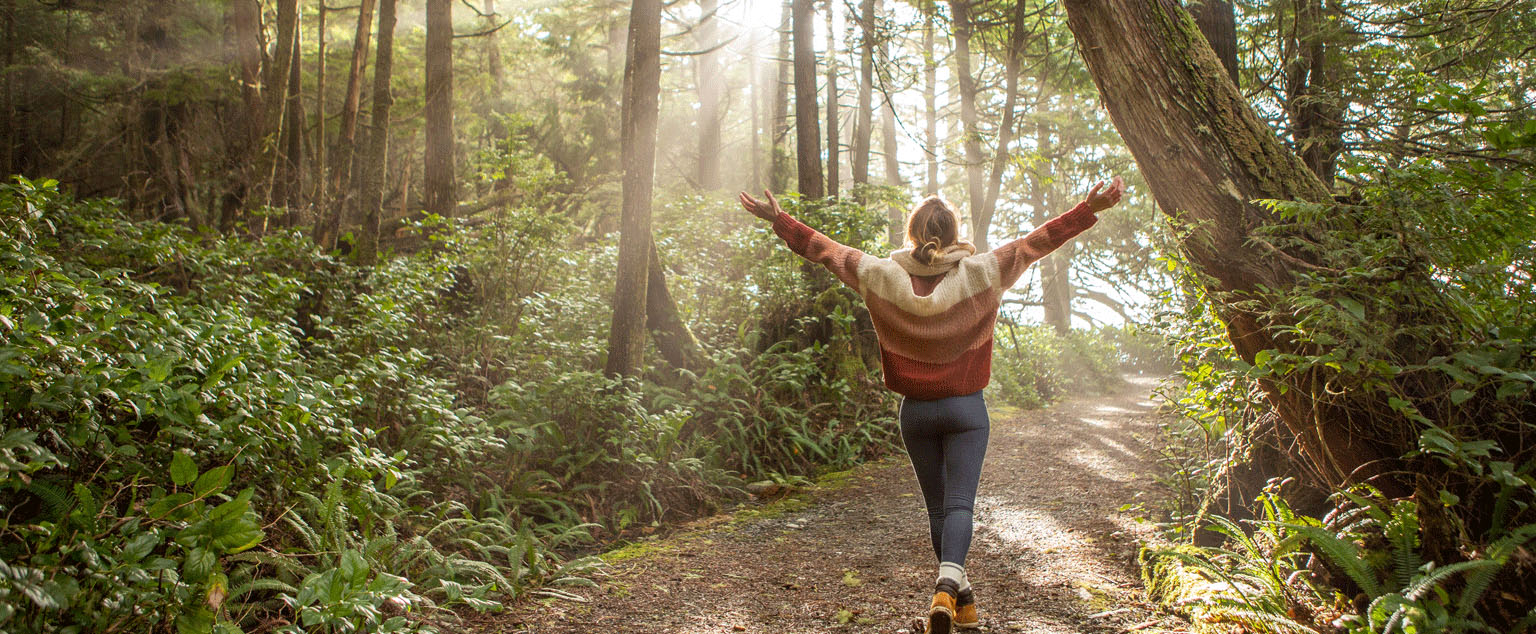How Nature Heals Us

We know that there is solace to be found in nature; from daily walks, time spent in the garden and even tending to our houseplants. Apart from the obvious pleasure in nature and opportunity for "time out", why might this be?
A variety of scientific studies have pointed to specific ways in which the brain reacts to the information it receives through the senses when we connect with nature.
Sight:
When light and colour is transmitted from the eye to the brain, signals are sent to the hypothalamus - the part of the brain responsible for the secretion of a number of hormones which control many aspects of the body's self-regulation, including temperature, sleep, hunger and mood.
The human brain is drawn to and soothed by fractal-like images such as the branches of a tree against the sky, the shapes of petals or the pattern of veins on the back of a leaf. Fractals engage the parahippocampal, which is involved with regulating emotions and is also highly active while you are listening to music.
Putting it into practice:
Ideally try and spend some time every day outside in nature, whether this is in the countryside, a park or garden. You could also take a few moments of relaxation gazing at the leaves and stems of a houseplant - or even some kitchen herbs. Notice how colours change at different times of day; how patterns form and re-form in the breeze; examine a flower, a feather or leaf really close up and discover the fractals.
Sound:
Researchers have compared the effect of natural sounds versus artificial, mechanical ones on volunteers' brain activity, and found that the sounds of nature encourage an outward-directed focus of attention, a process that occurs during wakeful rest periods like daydreaming. In contrast, artificial sounds created an inward-directed focus, which occurs during states of anxiety.
Putting it into practice:
Birdsong was cited as the number one favourite natural sound in a National Trust poll, and an increased awareness of birdsong was one positive side-effect of the first lockdown last year when traffic noise was temporarily much reduced. You can listen to birdsong wherever you are, thanks to the free birdsong radio app from the Royal Society for the Protection of Birds.
Neither Sight Nor Sound - the Quietly Invisible
The green-fingered have always maintained that gardening is good for you - and there are certainly many benefits including fresh air, sense of accomplishment, plus the harvest if you are growing your own veggies. However, there is also another factor: without you even being aware it is happening, nature can help you feel better through the benign bacterium in soil called Mycobacterium vaccae. This triggers the release of serotonin, a feel-good neurotransmitter in our brains, causing mood to be lifted.
Putting it into practice:
Gardening can be on any scale you like or can manage. Pots on your windowsill, patio or balcony, a small vegetable plot or bed for flowers - all will provide you with opportunities for contact with soil and its beneficial bacteria. Sowing seeds and seeing them germinate and flourish can be a mindful activity in itself. Better still, if you have children or grandchildren, get them involved so they can learn first-hand what plants need to thrive and grow.
If you really want to immerse yourself, why not try the (relatively) new trend of forest-bathing. This fully-clothed activity began in Japan in the 1980s as a preventative therapy, but it is now thought to help with depression, anxiety and contribute to general wellbeing.
Further Reading & Resources:
- "Back to Nature: How to Love Life - and Save It" Chris Packham and Megan McCubbin
- "The Wild Remedy" Emma Mitchell.
- The Forest Bathing Institute
- Mind.org





